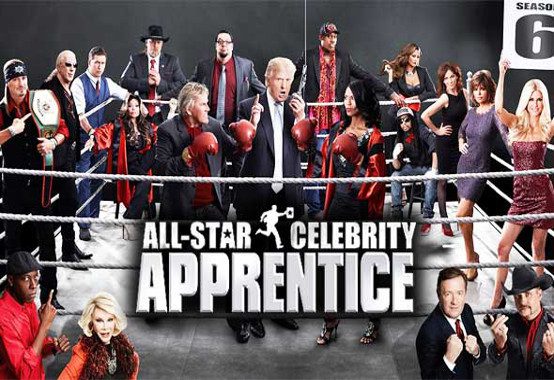TMZ Is the Justice of the Masses

Christopher Beha’s Arts & Entertainments is built around a classic morality-tale structure: the devil’s bargain, the spiraling consequences, the choice between a good reputation and a good conscience.
Eddie Hartley is an acting teacher of the “those who can’t do” type, whose marriage is being ground down by his wife Susan’s longing for the children they can’t conceive on their own. To pay for another round of IVF treatments, Hartley sells a sex tape from his youthful relationship with an actress who has gone on to become a megastar. He plans to keep his face off the tape and his name out of the press, but that plan turns out as well as literally all of his previous ones.
Hartley becomes a celebrity: what we have instead of Punch and Judy shows, or lives of the saints. He’s part Wile E. Coyote, the battered villain whose pain provokes the audience’s laughter, and part scapegoat, punished and outcast for our sins as much as for his own. By the end of the novel he’s been fired, kicked out by his wife, pelted with eggs, even drained of blood; a shadowy reality-TV king (albeit a king enslaved by his audience) orchestrates a reunion with Susan which is as unsettling as the drugged-up “happy ending” of A Midsummer Night’s Dream.
Arts & Entertainments, like Beha’s previous novel, What Happened to Sophie Wilder, is a story about the limits of storytelling. What Happened depicts the inability of storytelling or mere imagination to create hope; in A&E the focus is on the way we create and consume stories of other people’s lives in order to feel better about our own. The stories we create about celebrities—and also the self-justifying stories we create about ourselves, and the stories we project onto our loved ones–distance us from other people rather than connecting us. One of Eddie’s humbler moments comes when a talk-show host offers to pay him for his side of things, and he admits, “I don’t really have a side of the story.”
This book is less experimental than What Happened, and its prose is blunt and plain. I found it hard to get through the early chapters of the book, when we’re just being told the situation and introduced to the characters. Soon, though, I was wrapped up in the story. I wanted to watch the fallout from Eddie’s decision to sell the tape—and I wanted to know what would happen with the IVF. Susan’s clawing need for children made me choke up more than once: “I just miss my children,” she says. “I know that sounds crazy, but it’s like they exist out there somewhere—not just the idea of them—and they’re being kept from us.”
The celebrity-culture satire is fine as far as it goes. There’s a guy whose business cards say, “Meme Evangelist” (not worse than “brand pollinator” or “social media sniper”), and it’s not hard to guess how cutting and splicing will make Eddie-on-TV say the opposite of what Eddie-IRL said. There are moments when the satire feels heavyhanded—a speech from the ex-seminarian reality mogul, for example, in which he just straight-up tells you that the audience has replaced God—and because we’re completely embedded in Eddie’s point of view, the women tend to flatten out. Susan’s aesthetics change completely once the cameras get a hold of her, in a way which feels cheap and pushy. Still, the novel captures a feeling of being hunted, the paranoia of a world filled with cameras the size of your thumb. And it suggests the ways in which cultivating fantasies of fame can solace us for the disappointments of our real lives: TMZ is the opiate of the masses.
The themes which resonated more deeply with me weren’t the fame/celebrity stuff, the hatcheting of American idols. What I found striking was Beha’s portrayal of failure, and his subtle, intermittent critique of justice.
Eddie is able to grow and change through the course of the novel in part because he’s already acknowledged himself as a failure. He wasn’t good enough to be an actor (the sex-tape actress told him so, in a nice, harsh touch) and although he has tried to suppress this knowledge, he can’t escape it. He’s already given up the biggest part of his self-image. (Eddie, realizing that his years pursuing acting have left him with nothing but credit-card debt: “It wasn’t just that he had nothing to show for a decade of his life. He had less than nothing. Those years had amounted to a debit on his account.”) Susan is less willing to surrender precisely because she can still get what she wants. Her fantasy of herself is being dangled right in front of her eyes, if she can just scrape together enough money and enough luck.
Throughout the novel we get hints that the public is thirsty for justice—for some sign that this is a just world. You can even hear it in Susan’s immensely poignant line, above, about her nonexistent children being kept from her: There must have been some mistake, life isn’t supposed to be like this, it’s not fair and it should be fair. And so we use celebrities’ triumphs and suffering to prove that however things might look, virtue is rewarded and vice punished. Every story has an obvious meaning; there’s no absurdity, no unreconciled losses. People magazine is a Bible without the Book of Job. Arts & Entertainments consistently treats visions of justice—of getting what we believe we deserve—as fantasies, as destructive as our fantasies of fame.
Comments